Kings can swear, factoryhands can’t
Some films that use the f-word get a 15 rating and others get a 12A. What’s going on at the BBFC?

Want unlimited, ad-free access? Become a spiked supporter.
At the 1960 obscenity trial of DH Lawrence’s bulbs-and-buggery classic Lady Chatterley’s Lover, the prosecution barrister Mervyn Griffith-Jones asked jurors whether the novel was suitable for ‘your wife or your servants to read?’. Given the eventual verdict, the jurors clearly weren’t worried about this possibility. Mistaking his own snobbery for masterful rhetoric, Griffith-Jones had seemingly misread the liberalising mood of the time.
Or had he? For while it is largely left up to readers whether or not they wish to dip into, for instance, the expletive-laden universe of Lady Chatterley’s gardener, filmgoers are not accorded the same liberty. You see, unlike literature, especially the highbrow stuff with ‘classic’ stamped down the spine, film is seen as just too much of a mass medium, its audience too lowbrow. It’s not just a prosecution lawyer’s empty threat – the proverbial ‘wives and servants’ do actually watch movies. Which is why, since its establishment in 1912 as the British Board of Film Censors, the British Board of Film Classification (BBFC), as it is now called, ensures that no film can be seen in Britain without first being pored over by its own band of Griffith-Jones, who will chop and censor to their hearts’ content before giving the film the BBFC’s stamp of qualified approval: the film rating.
But in recent years, the BBFC’s moral authority – that is, its authority to judge what the lower orders can and can’t see – seems to be unravelling. This is apparent in the recent, bizarre case of The King’s Speech, a film telling the story of King George VI’s determination to overcome his debilitating stutter. Featuring a scene in which Colin Firth’s king is encouraged to swear by his speech therapist, the twice-used ‘Fuck’ was enough for the BBFC initially to give it a 15 rating.
But then, possibly because of complaints from the film’s producers, the BBFC had second thoughts and revised the rating down to a 12A. The reason for this was that the BBFC had ‘decided the language was not aggressive or directed at any person’. Yes, Firth’s character used the F-word twice, but he did not do so ‘in any abusive or hurtful context’. Or, as the BBFC’s note added to its rating explains: ‘Contains strong language in a speech-therapy context.’
The problem for the BBFC is that all of its corrupting bugbears appear in one context or another. One person’s brutal, pointless destruction of life is another person’s Saving Private Ryan. What some might view as a moral examination of sin and atonement could just be dismissed by someone else ‘as another bloody Saw film’. So it is with swearing. On hearing that The King’s Speech had been reclassified, Stephen Woolley, the producer of Made in Dagenham, was somewhat peeved.
His film, portraying the struggle for equal pay by a group of 1960s female factory workers, also featured the use of the word ‘fuck’ and was duly given a 15 rating. Woolley raged that the ‘decision [to reclassify The King’s Speech] is obviously about kings and queens being allowed to swear, but workers should know their place’. The BBFC in turn offered the rather weak rejoinder: ‘Although the word [fuck] is uttered, it only occurs in two scenes in The King’s Speech, whereas with Made in Dagenham it is spread over the film. Generally the uses occur as part of heated exchanges between characters.’
In short, the BBFC is saying that it’s okay to swear in the depiction of a speech-therapy session but not in the depiction of political struggle. It is an interpretive effort that puts the BBFC on shaky ground. The BBFC is not simply saying ‘you can’t say or show that’ anymore – it lacks the confidence, the moral certainty, to do that kind of thing. So instead, it is qualifying its judgement, offering interpretation, assessing artistic intent. Shrinking back from its role as a guardian of the nation’s morals, whether those of wives, servants or under-15s, the BBFC is now acting like a super-critic, deciding whether this or that is suitable not on the basis of a objective rules, but on the basis of subjective evaluation.
In doing this, the BBFC reveals itself to be no more than one opinion amongst many. Without the authority of a strict moral view of what we can and can’t see at the local multiplex, it just sounds like dodgy film criticism. Perhaps the BBFC simply has a problem with social realism.
Yet in one regard, the BBFC’s authority remains worryingly intact – its authority to judge the audience, to decide for us what we ought to be allowed to see. Sweary speech therapy is fine, it seems – but not angry women strikers. The BBFC is still assuming that certain content, assessed in ever-more convoluted ways, will affect the audience adversely and possibly corrupt us. Yet just as there is no evidence, even by the BBFC’s own admission, that watching pornography leads to a rise in sex crimes, or that watching violent thrillers will turn us into action heroes, so, too, I would wager, there is no evidence that swearing in a film about factory workers will forge a nation of potty-mouthed under-15s with left-wing political views. But incontrovertible evidence is not what’s important for the BBFC. Its judgement rests not on some supreme knowledge of cause-and-effect, but on prejudices about the people who watch films.
Tim Black is senior writer at spiked.
Watch the trailer for Made in Dagenham:
Watch the trailer for The King’s Speech:
You’ve read 3 free articles this month.
Support spiked and get unlimited access.
Help us hit our 1% target
spiked is funded by readers like you. It’s your generosity that keeps us fearless and independent.
Only 0.1% of our regular readers currently support spiked. If just 1% gave, we could grow our team – and step up the fight for free speech and democracy right when it matters most.
Join today from £5/month (£50/year) and get unlimited, ad-free access, bonus content, exclusive events and more – all while helping to keep spiked saying the unsayable.
Monthly support makes the biggest difference. Thank you.

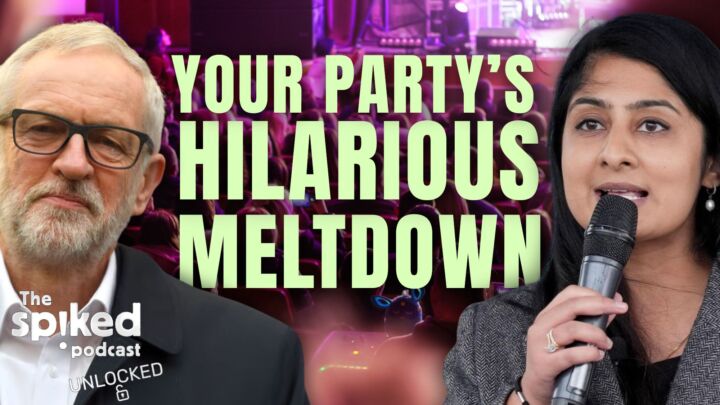
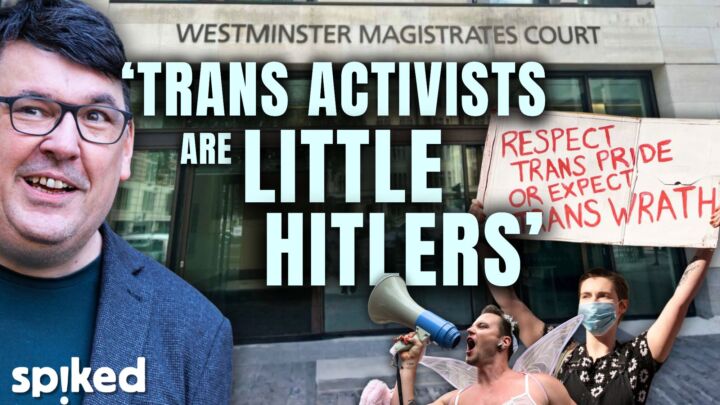
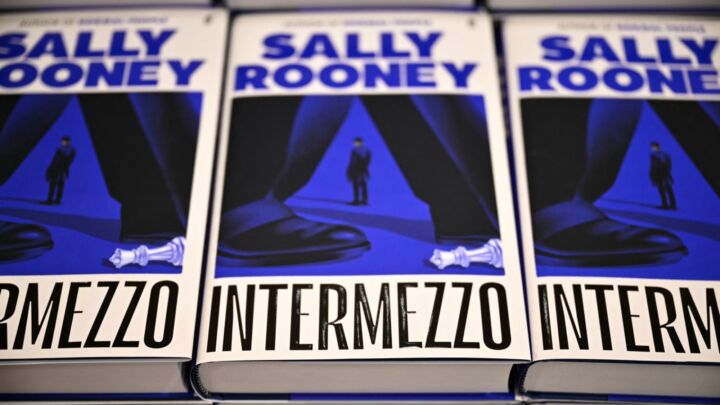

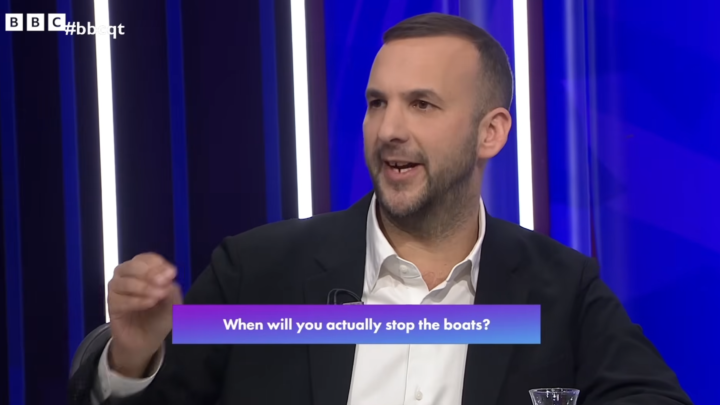



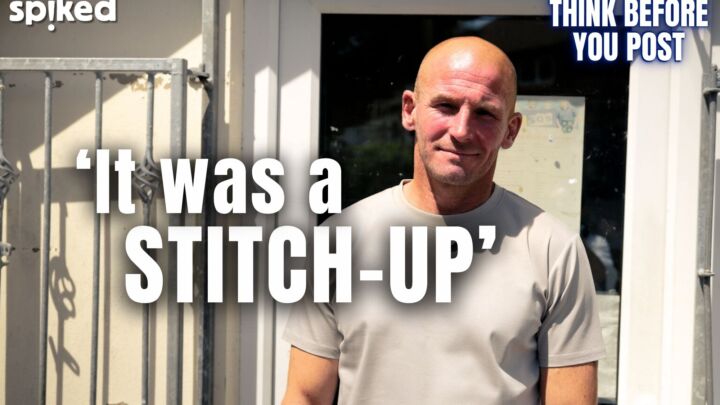

Comments
Want to join the conversation?
Only spiked supporters and patrons, who donate regularly to us, can comment on our articles.